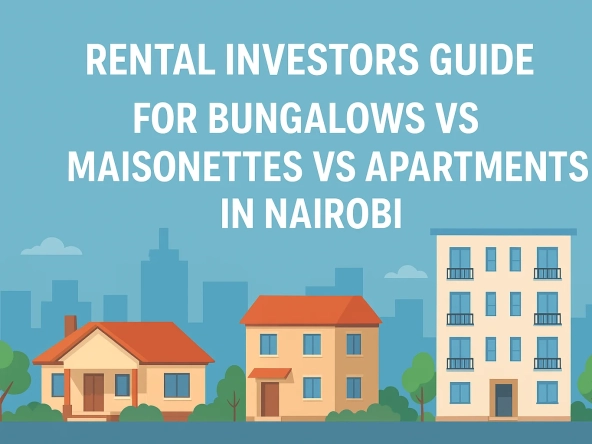Buying your first home is an exciting milestone, but it can also be overwhelming. Without proper knowledge, it’s easy to make costly mistakes that can affect your financial well-being and overall homeownership experience.
Here are six of the most common mistakes first-time homebuyers make, along with strategies to avoid them and how to correct them if you’ve already fallen into one of these pitfalls.
1. Not Budgeting for Hidden Costs
The Mistake:

Many first-time buyers focus solely on the listing price of a home, assuming that their only financial responsibility will be the mortgage payment.
However, homeownership comes with a variety of hidden costs that can quickly add up. These include closing costs, property taxes, homeowners insurance, utility bills, maintenance, and unexpected repairs.
Without proper budgeting, new homeowners may find themselves struggling financially soon after moving in.
How to Avoid It
- Create a detailed budget that includes all potential expenses.
- Factor in closing costs (typically 2-5% of the home’s price), moving costs, and emergency home repairs.
- Consider setting aside at least 1-2% of the home’s value per year for maintenance and unexpected repairs.
How to Correct It
If you’ve already bought a home without accounting for these costs, adjust your finances by:
- Cutting unnecessary expenses to build an emergency fund.
- Exploring refinancing options to lower your monthly mortgage payment.
- Looking for home warranty options that can help cover major repairs temporarily.
2. Skipping Mortgage Pre-Approval
The Mistake:

Some first-time buyers start searching for homes without getting pre-approved for a mortgage.
This can lead to wasted time looking at houses that are out of their budget, frustration when they fall in love with a home but cannot secure financing, and even losing out to other buyers who are better prepared.
Without a pre-approval letter, sellers may not take your offer seriously.
How to Avoid It
- Get pre-approved for a mortgage before starting your home search.
- Work with multiple lenders to find the best interest rates and terms.
- Ensure your credit score is in good shape before applying.
How to Correct It
If you’ve already started house hunting without pre-approval:
- Immediately get pre-approved before making an offer.
- Be prepared to move quickly when you find the right home by having your financial documents ready.
3. Ignoring the Neighborhood
The Mistake:

Many first-time buyers focus too much on the house itself and forget to evaluate the surrounding neighborhood. Even if a home has everything you want, a bad location can significantly affect your quality of life.
Issues such as long commute times, high crime rates, lack of amenities, and poor school districts can make even the most beautiful home a regretful purchase.
How to Avoid It
- Research crime rates, school districts, and future development plans.
- Visit the neighborhood at different times of the day to assess noise levels, traffic, and overall atmosphere.
- Talk to current residents to get their perspectives.
How to Correct It
If you’ve already moved into a neighborhood that doesn’t meet your expectations:
- Look for ways to improve your experience (e.g., joining local groups, investing in security systems).
- If the issues are significant, consider renting out your home and moving elsewhere.
4. Letting Emotions Drive the Decision
The Mistake:

Buying a home is an emotional experience, and first-time buyers often let their emotions cloud their judgment.
They may fall in love with a house’s aesthetic appeal and overlook serious issues such as structural damage, high maintenance costs, or an impractical layout.
This can lead to making a rushed decision, overpaying, or regretting the purchase later.
How to Avoid It:
- Stick to your budget and list of must-have features.
- Have a logical approach by comparing multiple homes before making a decision.
- Hire an inspector to assess the property before committing.
How to Correct It:
If you overpaid for a home due to emotional decision-making:
- Look into refinancing options to lower your monthly payments.
- Focus on increasing your home’s value through strategic renovations.
5. Underestimating the Importance of a Home Inspection
The Mistake:

Some first-time buyers skip the home inspection to save money or because they are eager to close the deal.
This is a huge mistake because home inspections help identify hidden problems such as plumbing issues, faulty wiring, structural damage, or pest infestations.
Without an inspection, you may end up with costly repairs that you weren’t prepared for.
How to Avoid It:
- Always hire a professional inspector, even for newly built homes.
- Attend the inspection to ask questions and learn about potential issues.
- Get repair estimates for any problems found and use them to negotiate with the seller.
How to Correct It:
If you already bought a home without a thorough inspection:
- Get an inspection now to identify any urgent repairs.
- Set aside a repair fund and prioritize fixing major structural issues first.
6. Not Considering Future Needs
The Mistake:

Buying a home that only fits your current situation without thinking about future needs (e.g., growing family, remote work, resale value) can lead to outgrowing your home quickly, forcing you into a premature sale or an expensive move.
How to Avoid It:
- Think long-term—consider extra space, good schools, and resale potential.
- Buy a home that offers flexibility, such as an extra bedroom or convertible space.
How to Correct It:
If your home no longer suits your needs:
- Explore home expansion or remodeling.
- Consider selling and upgrading sooner rather than later to avoid market fluctuations.
Conclusion
Buying a home is one of the biggest financial decisions you’ll ever make, and avoiding these common mistakes can save you time, money, and stress.
By budgeting for hidden costs, researching neighborhoods, thinking long-term, and ensuring you fully understand your mortgage terms, you can make a well-informed decision that supports your financial future.
If you’ve already made some of these mistakes, don’t panic—many issues can be corrected with the right strategies.
Taking the time to plan, research, and seek expert advice will set you up for success in your homeownership journey.



